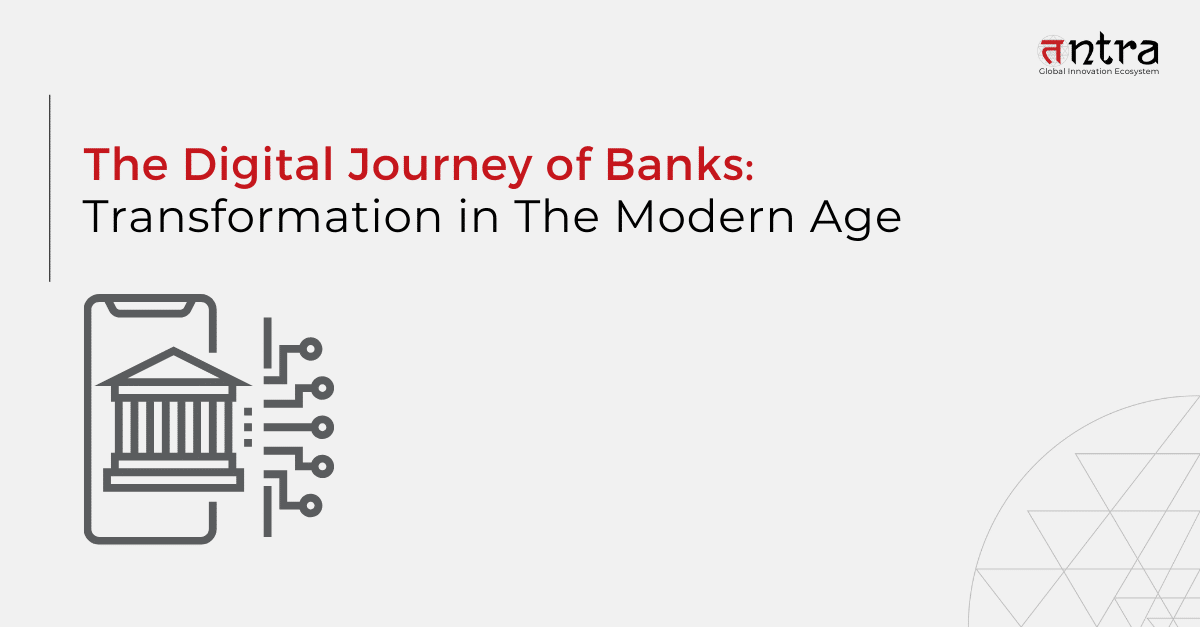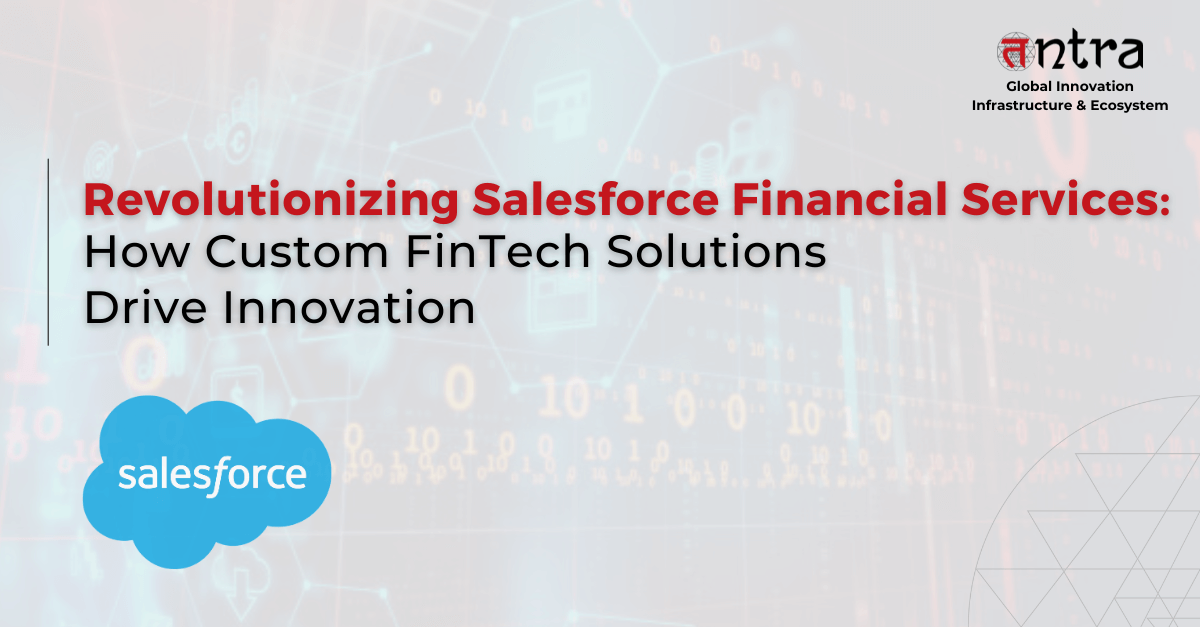
The Digital Journey of Banks: Transformation in the Modern Age
Table of Contents
ToggleSummary
The finance industry is undergoing a digital makeover! Banks are modernizing everything from accounts to processes to give you a smoother, more secure experience. Open banking and mobile apps are making transactions faster and easier, while AI personalizes your banking with relevant financial solutions. Cybersecurity is also a priority, with banks using advanced methods to protect your information. This blog showcases the various technologies and their transformative power in bringing digital change to the banking industry. Read to know more.
The top US banks, including JPMorgan, Bank of America Corp., Citigroup Inc., and Wells Fargo & Co., use AI in a variety of ways, which are clear examples of digital transformation in banking. Our transcript analysis revealed that cybersecurity, fraud detection, and virtual assistants were among the most often mentioned topics. But these were only a few examples of the adoption of digital technologies. JPMorgan stated at its investor day in May that it had over 300 AI use cases in production; for example, its asset management business employs AI to build trading strategies and hedge stock portfolios.
Smaller banks are also employing digitization in banking and fintech. FVCBankcorp Inc. and Financial Institutions Inc. mentioned using AI to make loan decisions. FVCBankcorp, whose Fairfax, Virginia-based FVCbank has $2.34 billion in assets as of June 30, offers Lightning financing, an AI-powered small business financing platform. According to the bank, successful applicants frequently get funds within 48 hours, and algorithms are set up to automatically accept or refuse each application. Financial Institutions’ Warsaw, NY-based Five Star Bank, which had $6.1 billion in assets as of June 30, uses Artificial Intelligence for credit determinations in its indirect auto lending business.
Even if a bank does not employ AI for decision-making, it can help to accelerate the lending process for digital banking transformation. Live Oak Bancshares Inc., whose Wilmington, NC-based Live Oak Banking Co. with $10.72 billion in assets as of June 30, discussed in the first quarter of 2022 how Able AI Inc., a firm it invested in, will assist it in ingesting and classifying commercial loan papers more efficiently.
(Source: S&P Global)
Digital Transformation in Banking: an Upward Trend
According to a report by International Data Corp. (IDC), a provider of technology market intelligence and advisory services, global spending on Artificial Intelligence is expected to reach $166 billion in 2023 (with banking accounting for approximately 13% of the total), rising to $450 billion by 2027.
Despite the sluggish beginning, the potential for widespread application of generative AI suggests that the banking sector is one of those most likely to benefit from the advancement of such fintech app development solutions. If the use cases are completely deployed, generative AI may generate between $200 billion and $340 billion in value annually (9%-15% of banks’ operational profits), according to a 2023 analysis by McKinsey & Co., a management consulting firm.
According to financial services data, 78% of clients would continue to use their bank if it offered personalized content. AI uses data analytics to study client behavior, allowing financial institutions to create tailored services. It helps you build trust with customers by demonstrating that their specific needs are acknowledged and met.
How Digital Technologies are Shaping the Banking Industry
Digital transformation in banking and financial services remains a major theme in the industry, and financial institutions (FIs) are constantly working to fine-tune the key requirements for successfully leveraging digital capabilities to improve profitability, whether by improving the customer experience or operational efficiencies.
To properly implement a digitization strategy, a bank’s individual activities, products, and processes must be modernized, as well as the bank’s whole business model. To do this, the transaction banking industry is actively exploring the potential provided by the most recent digital transformation technologies, such as open banking, APIs, and Artificial Intelligence (AI).
- APIs and Open Banking
The rise of open banking has led to an increased competitive environment in the financial markets – the perfect environment for implementing a digital transformation strategy. Open banking involves encouraging increased collaboration among financial institutions, whether driven by regulation, such as the Payment Services Directive (PSD2) in Europe, or market-led efforts, such as those in the United States.
Banks committed to providing an effective and seamless client experience should explore open banking and application programming interfaces (APIs) as a connection channel that allows for real-time, embedded, and automatic data flows between institutions. APIs can simply interact with current treasury infrastructure and interfaces. - Cybersecurity and Fraud Prevention
As digital transactions increase, the significance of cybersecurity must be emphasized. Banks use modern security methods, including biometric authentication, multi-factor authentication, and encryption protocols, to protect consumer information and prevent unauthorized access.
Machine Learning systems analyze large datasets in real-time, allowing banks to recognize and prevent fraudulent activity early on. By spotting aberrant patterns, these fintech app development services and technologies help to build a strong defense against cyber threats, giving customers confidence in the safety of digital transactions. - Mobile Banking and Personalization
Smartphones have transformed the banking experience. Using mobile banking apps has become an important component of making banks more digital. Customers may easily check their money in real-time, shift funds around, and manage their accounts from their phones. This digital transformation trend changes the experience from a laborious job to a convenient, on-the-go experience.
Banks utilize data analytics to understand more about their customers’ behavior by examining what they buy and when they may provide items that meet each individual’s needs. It’s like having a bank that knows you well and can suggest things that will make you happy. This allows them to personalize banking and build financial solutions that are tailored to individual needs.
Digital is the Future: Banks must Embrace this Transformation
The introduction of emerging technologies, such as 5G and IoT, is enabling more widespread access to banking apps. Blockchain solutions have the potential to revolutionize the way banks work by providing a safe and accessible platform for transactions. Blockchain can potentially be utilized for identity verification and fraud prevention. Artificial Intelligence is already used in banking to detect fraud, manage risks, and provide customer care. Chatbots and virtual assistants will become more smart in the future, increasing the importance of AI in banking.
To keep up with the shifting technological landscape, banks must be adaptable and imaginative. Digital transformation in banking is an essential requirement for financial institutions that want to prosper in an increasingly digital world. The integration of technology not only improves client experiences and operational efficiency but also strengthens cybersecurity safeguards.
If you are looking for a software product engineering company that can assist your bank or financial institution with digital transformation services, look no further than Tntra. With over 100+ experts and engineers, we are well-equipped to make you a leader in your industry.
Book your FREE CONSULTATION CALL today!





